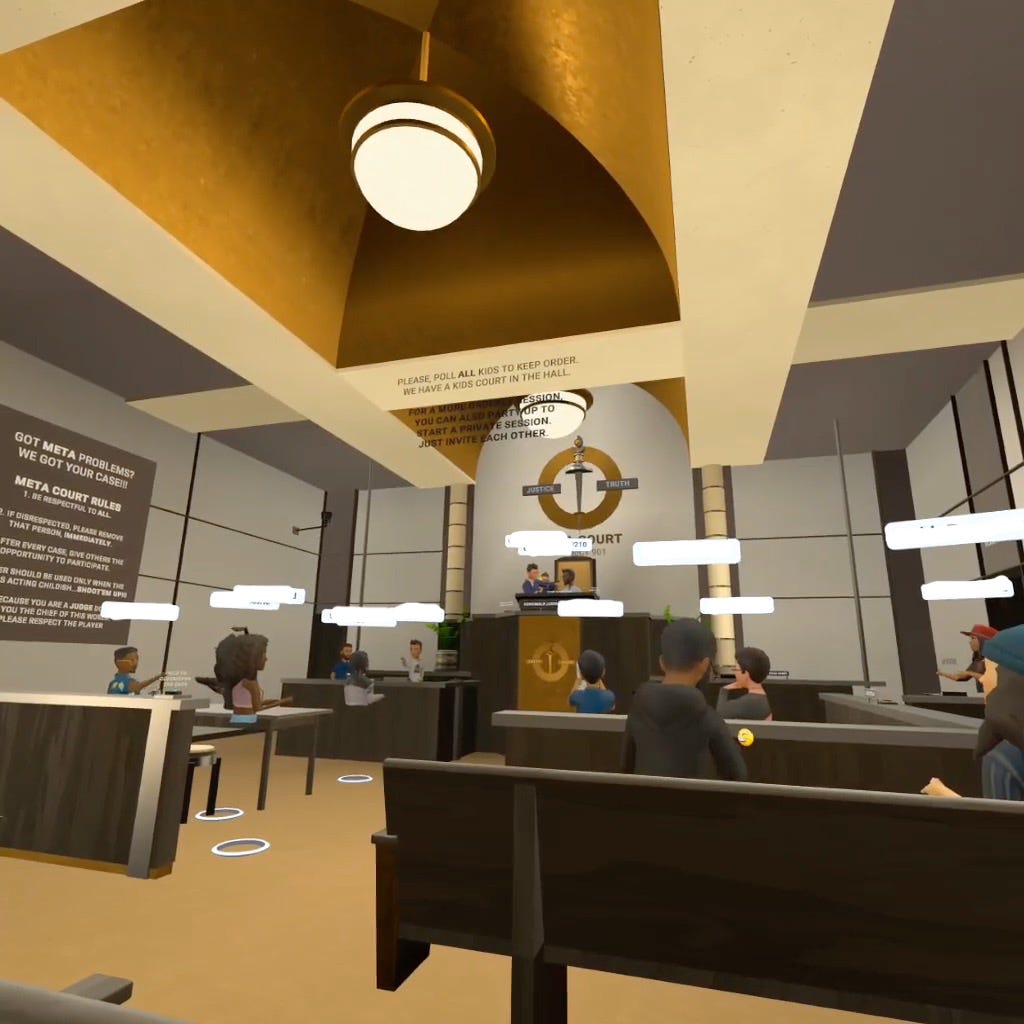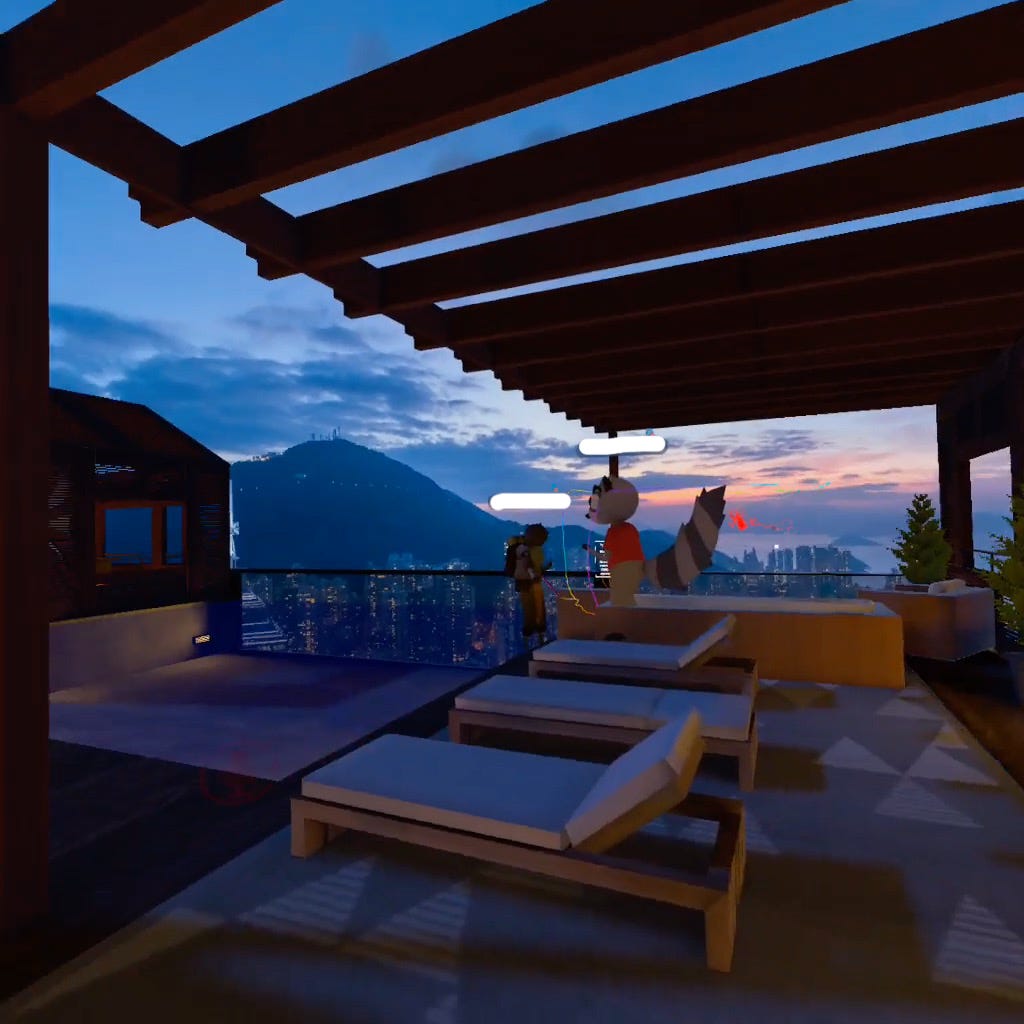What the Metaverse can offer to the future generations?
In addition to gaming, there are more use cases of the Metaverse that we should look into
“What’s interesting to me about the metaverse as a transformative event for the global economy and the digital economy is that, in many cases, we see those first use cases attacking categories that have long avoided digital disruption.”
— Matt Ball, The promise and peril of the metaverse
(Photo by Giu Vicente on Unsplash)
Talking about the Metaverse, a frequently-asked question is – “What are the use cases of the Metaverse?” Gaming is the most obvious and frequent-mentioned use case. However, as the technologies progress, the Metaverse will definitely bring more to our future generations.
Here are the four major areas that we believe the Metaverse will bring innovations in:
Education: a platform to teach tacit knowledge
During pandemic, remote education has been proven to be a workable measure for students to acquire knowledge. However, the experience that physical schools provided is hard to replace. Many still want to go to a physical location to talk to people, conduct experiments, and even see terrains or ancient ruins with their own eyes. Though textbooks, websites, and Zoom classes are enough for students to learn explicit knowledge, for tacit knowledge, the students need a better channel to learn it.
The Metaverse can bridge the learning experience between digital and physical settings, giving teachers a powerful tool to transfer both explicit and tacit knowledge. It can create an immersive environment for students to experience the knowledge. With VR, kids can travel to Egypt and explore the pyramids while learning the historical facts. They can even join a court to practice how to debate and fight for justice.
(The above picture was taken in Meta Court, Horizon Worlds)
Entertainment: bring “Experience Equity” to the public
While the Internet brings knowledge equity to its users, the Metaverse will offer “Experience Equity” to future generations, setting exclusive experiences free to the general public. Through the Metaverse, people, regardless of their social status and country of residence, will have the access to life experience which was only for those privileged in the past.
For people with limited capital or physical abilities, the Metaverse can give them access to activities or places they cannot experience in the physical world. Patients who are unable to leave the hospital can go hiking with their friends. Young people who do not own a house can join parties at fancy apartments on Metaverse platforms.
(The above picture was taken in VRChat)
For people who have limited personal space in the physical world, the Metaverse gives them a spacious land to breathe and relax. Students in the dormitory, residents in a crowded city, kids who share a room with their siblings, they can find and even create a space that belongs to them.
Activities can happen at any place, breaking our imaginations. Users can exercise on volcanoes, have parties on Mars, and sing in the deep ocean.
Workplace: capabilities and productivity improvement
Human abilities and efficiency can significantly increase if the Metaverse technologies connect the knowledge of the virtual world with the physical world seamlessly.
With AR glasses, technicians are able to perform complicated tasks such as elevator maintenance and surgery more accurately and efficiently. In 2016, Microsoft demonstrated how 24,000 elevator service technicians can use HoloLens and thyssenkrupp to identify problems ahead of a job and have remote, hands-free access to technical and expert information when on site. In 2021, Johns Hopkins surgeons performed augmented reality surgeries on living patients. Having augmented reality in the operating room is like having a GPS system in front of the surgeons’ eyes – they can see the patient’s CT scan in a more natural way.
In the office, the Metaverse can increase general employees’ productivity. AR glasses can help people find their next meeting place easily, check people’s LinkedIn profiles while talking to them, and find the missing documents from a messy shelf. Platforms such as Spatial, Microsoft Mesh, and Horizon Workrooms allow team members from different regions to feel presence and collaborate with others smoothly.
In short, the Metaverse technologies will allow human beings to live up to their full potential and achieve more than they previously can do.
Creation: build and express creativities and fantasies
By providing better creator tools and new monetization mechanisms, the Metaverse will set people’s creativity free and make the boundary between users and creators more blurry.
The Metaverse gives creators more and better tools to express themselves. With creator tools on Metaverse platforms, people can create worlds and assets that can express their fantasies. It will be easier for us to find people who share the same dream as us. Architecture can use VR and digital twin technologies to design a house from user’s perspective.
With the creator economy functionalities (ex: NFT) that the Metaverse may provide, general users can monetize their work easily. The entry barrier to becoming a creator will be significantly lower. Even without business scale or professional training, anyone can be a creator on the Metaverse.
More to come
The development of the Metaverse technologies is still in the progress. In the future, there will be more use cases that are beyond our imagination today. It’s impossible to capture all the possibilities now, but one thing is for sure – the Metaverse will give users more freedom and more options to live up their reality.








